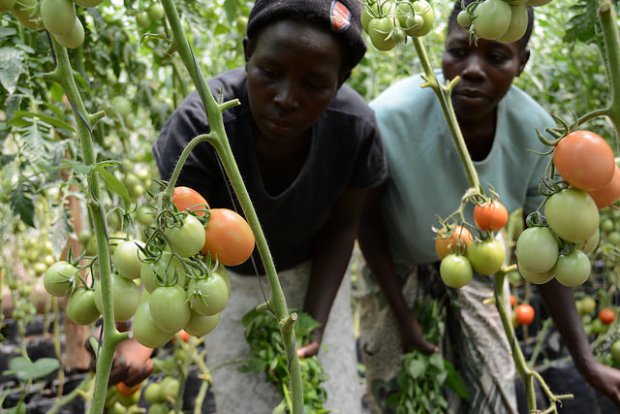 A local youth group is reaping big from climate change adaptation initiatives; inspiring learning within the community.
A local youth group is reaping big from climate change adaptation initiatives; inspiring learning within the community.
“When spider webs unite, they can tie up a lion,” so goes an old Ethiopian proverb emphasizing the value of teamwork.
 A local youth group is reaping big from climate change adaptation initiatives; inspiring learning within the community.
A local youth group is reaping big from climate change adaptation initiatives; inspiring learning within the community.
“When spider webs unite, they can tie up a lion,” so goes an old Ethiopian proverb emphasizing the value of teamwork.
In the Nyando area of western Kenya, the increasing frequency of late onset and early ending of rainfall seasons, as well as drought and flood events, is negatively affecting farming activities leading to food insecure households. To address this problem, Nyando farmers have come together and established three strong community-based organizations comprising of a number of youth and women groups. These groups work closely with researchers, government agencies, the civil society and the private sector to test agricultural innovations thereby showcasing promising technologies to the community for wider adoption.
Read more: Responding to climate related risks to address food insecurity in Nyando, Kenya (PDF)
Meet the Lower Kamula village youth group; one of the most enterprising in the area. Formed in 2013, this group of 12 (with four women) is testing the smart farm concept. This includes greenhouse farming of up to a quarter of a hectare, combined with drip irrigation with the advantage of saving water. The greenhouse is free from flooding and drought; common climate related risks in the area. It further offers better control of pests and diseases which tend to worsen with the changing climate.
Read more: Impact of climate change on African agriculture: focus on pests and diseases
Other smart farm technologies include water conservation and management, seed bulking of fodder for livestock and growing of drought tolerant indigenous vegetables.
Read the full news on CCAFS' website.

